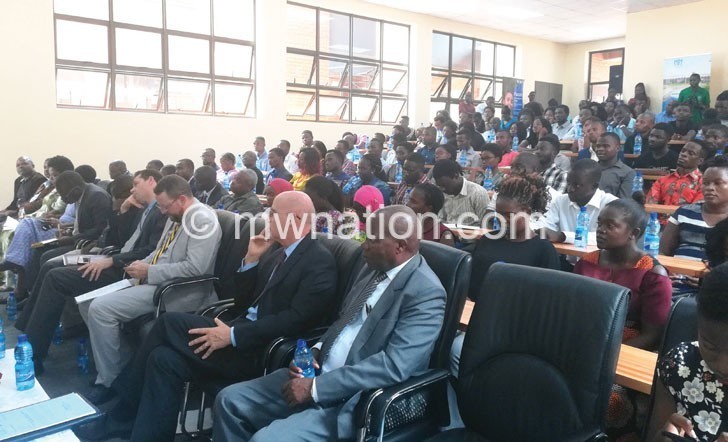US speaks against aid dependency
United States government has urged Malawi to move from aid dependency to trade.
Deputy Assistant Secretary of State Matthew Harrington made the sentiments Friday night when he delivered a lecture at the Lilongwe University of Agriculture and Natural Resources (Luanar).

He articulated the importance of private sector development and support, and empowerment of youth for Malawi to shift from aid to trade.
“It is time to leave the era of aid dependency behind and build a new kind of partnership. We welcome President [Peter] Mutharika’s commitment to ‘trade, not aid’.
“The United States remains Malawi’s largest development partner, contributing about $3.1 billion over the past decade. We are committed to remaining Malawi’s most significant partner,” he said.
He told the gathering of students and lecturers that over time, the US will strive to transition the partnership to one defined by private sector trade and development.
On Malawi’s current affairs, Harrington expressed concern that the US government has of late, noted post-election heated rhetoric and protests that have overshadowed the country’s years of peace.
He urged Malawians to respect and accept the Constitutional Court (ConCourt) ruling, expected to be delivered tomorrow, with the view to maintain peace, good for development.
“As the Constitutional Court case decision is released, we encourage all sides to calmly respect the decision and find common ground through dialogue,” he said.
Luanar vice-chancellor George Kanyama Phiri described the lecture as a reunion with the US government, which he said has continously supported the institution since 1966 with infrastructure, capacity-building and partnership with US universities, among others.
“They have renewed their commitment to support us with youth programmes and also committed to trade and investment which is relevant to us,” he said.
Kanyama Phiri admitted that the university has challenges such as Internet bills hovering around K200 million, water scarcity and electricity blackouts.
The lecture attracted numerous questions from both students and lecturers, specifically on how best Malawi can tame aid dependency, empower young people and women.





